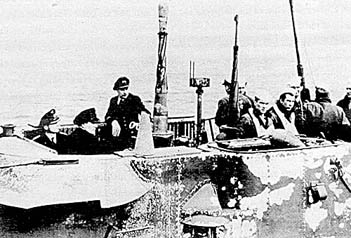Archives
Subscriptions
Advertising
Table of Contents
Editorial:
Regulation Without Representation.............2
Story of an Old Fisherman......................7
Sea Scallop Opening.........................8
Letter to the Editor.......10
Hunting Ethics..............11
Snowe Urges Extension of Comment Period.....12
Retraining Program.......13
New Business...............14
Meeting Notice.............15
Southwest Harbor Waterfront Tax Increase.......................16
Property Tax Meeting.......................17
E-Schemes &
E-Scams.......................18
DMR Prohibits Salmon Racks as Bait................20
Congress Gives Final Approval.....................21
NOAA Seeks Comments.....................22
NOAA Announces New Permit Provider..........24
Urchin Enhancement a Pioneering Effort.......26
Christmas, Two Scenes........................28
Music Review..............29
Classifieds....................30
MANAGING EDITOR
Bill Crowe
LAYOUT & DESIGN
Lance Lobo
TYPESETTING
Roberta Lobo
STAFF WRITERS
Bernice Johnson
Paul Molyneaux
CONTRIBUTING WRITERS
Kittridge Johnson
Mike Crowe
Lee S. Wilbur
SALES MANAGER
Bill Crowe
|
|
The Kittery Naval Shipyard
by Mike Crowe
| |
The issue over ownership of Seavey Island in Kittery is being kicked around again. The controversy started in 1969 when Maine enacted an income tax, to which New Hampshire residents working out of state at the shipyard, were subject. In 1976, to settle a "lobster war" between the two states, the U.S. Supreme Court set the ocean boundary between Maine and New Hampshire at the mouth of the Piscataqua. Debate continued on whether that boundary extended upriver. New Hampshire shipyard workers sued for an exemption from the Maine tax in 1992. This led to six years of wrangling until a Maine judge dismissed the suit in 1998. On March 6, 2000 New Hampshire filed suit in the U.S. Supreme Court to have the border dispute resolved.
Seavey is one of a group of islands in the Piscataqua that are part of the naval shipyard. The others are Dennett, Jamaica and Clark Islands. Today the 280-acre site is two-thirds densely industrial with 376 buildings. The islands have been connected by 90 acres of fill.
A shipyard was first established on Badgers Island, in 1690. The first ship built there was for the Royal Navy, the HMS Falkland.
|
 |
|
A private yard until 1800, it had been used exclusively by the Continental Congress from 1775 to 1800. In 1798 the Navy Department was established and the next year it decided the logistical demands and project scale in building large warships required publicly operated shipyards. A few public yards were formed along the Atlantic coast and one was on an island at the mouth of the Piscataqua River. Dennett Island became the site of the naval shipyard until 1866 when the government purchased Seavey Island.
Submarines have been built here since the First World War (1914-1917). The first sub was a Simon's Lake L-class, built in April 1917. During the war the number of workers increased to 5,000.
|
During World War II the number of civilian employees would reach 25,000. There were 70 subs built there during WW II, 31 in 1944 alone, with four launched in one day.
At the end of the Second World War it was the site of surrender for at least seven U-boats that operated in the area. One by one German subs were towed into the shipyard; at one point four in five days. These subs being brought in was big news regionally. For years stories of U-boats being sighted along the New England coast had circulated, but none had been captured and no sinkings confirmed. But there they were, lined up in what must have looked like a used submarine lot, with the crews locked up in the
continue
|
|
|

